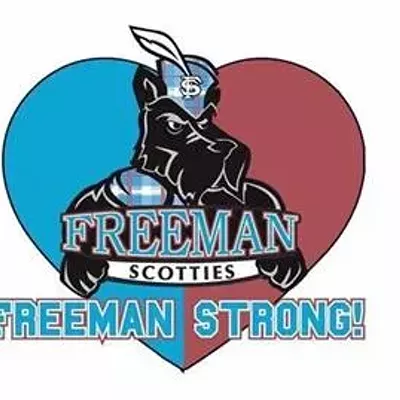Friday, September 15, 2017
A WSU psychologist talks about how schools can identify and help potential school shooters
Weeks ago, a sophomore at Freeman High School passed a note to friends indicating that he planned to do "something stupid," according to multiple news reports. According to court documents, a week ago, he wrote a suicide note, and he was seeing a school counselor for suicidal ideations.
On Wednesday morning, that same student, sophomore Caleb Sharpe, allegedly walked into Freeman High School with two guns and shot four students, killing one, another Freeman sophomore named Sam Strahan.
The tragedy raises a critical question for school officials and parents: How do you recognize the warning signs that could lead to a school shooting?
It hasn't yet been reported what, exactly, officials at Freeman High School knew about Sharpe's plans, or what the school tried to do to prevent them. (Freeman High School officials did not respond to Inlander requests for comment). But Chris Barry, a Washington State University associate psychology professor specializing in behavioral disorders of children and adolescents, says that there are a few steps schools can take, generally, to prevent kids from acting on violent threats.
The steps are relatively clear for certain threats, Barry says. If a student is threatening harm to themselves, Barry says schools should provide immediate attention, including counseling. If it's a threat to harm others, school officials have a duty to report to law enforcement.
It's trickier if the threat isn't against a specific person.
"It gets really murky if it's a vague threat about, 'I hate this school, I can just blow it up,'" Barry says.
At that point, the school should involve parents who can judge the seriousness of the threat. There other ways to tell if a student is serious or not. For example, if a student is more specific in how to carry out a plan, then it's cause for concern.
"What we find in some of these school shooting cases, is a lot of times there was an elaborate plan in terms of date, time and potential targets," Barry says.
The problem, of course, is that students may not be open about those plans. Yet Barry says there are other characteristics of school shooters. They typically feel isolated, disconnected from their peers and their community. And they may get frustrated easily.
Still, he admits it's difficult to say feelings of isolation or frustration in a teenager mean that they're a school shooter. These are feelings that teenagers feel all the time.
"There's not really a clear-cut way to do that," Barry says. "The only common thread I'm aware of that I'm able to isolate is that the perpetrators are male. And that's about it."
Kids who commit acts of violence, more generally, do have certain personality traits. Barry says many have a lack of a capacity to feel remorse, guilt or empathy. Those students, he says are more likely to act out. However, even if a student meets a sort of "recipe" for someone who could commit an act of violence — isolation, a tendency toward violent images — that doesn't mean they will.
"If you put all of those together, I'd be concerned," Barry says. "But I wouldn't say he's going to engage in violence at school."
Still, he says there are ways for schools and parents to help. Mainly, they should make sure they are communicating with students, sending a message that it's normal for teenagers to feel bad, to be irritable or frustrated.
He says students should be supported, not punished.
"If they express anger and frustration and threaten to harm themselves or others, it's not a punitive thing," Barry says. "It's 'let's find out what's going on here.'"
School districts have varying policies on how to handle students threatening violence. Spokane Public Schools, for example, has a policy that any written threat should be turned into a supervisor or counselor. It typically warrants an immediate suspension, says Oscar Harris, Spokane Public Schools' coordinator of middle school student services.
Counselors follow up with the student, parents are notified, and schools develop a plan before a student goes back
Barry has tips for how schools should help students after a nearby school shooting as well. Again, he says, it comes down to a clear line of communication with students. Schools should explain what happened as openly as possible, he says. Students will have responses to the tragedy, he says. But he says it's wise to get things back to normal.
"The quicker we can get back into routine and predictability, the better," Barry says.
Tags: Freeman High School , Freeman shooting , Caleb Sharpe , Chris Barry , Washington State University , Spokane Public Schools , News , Image

















